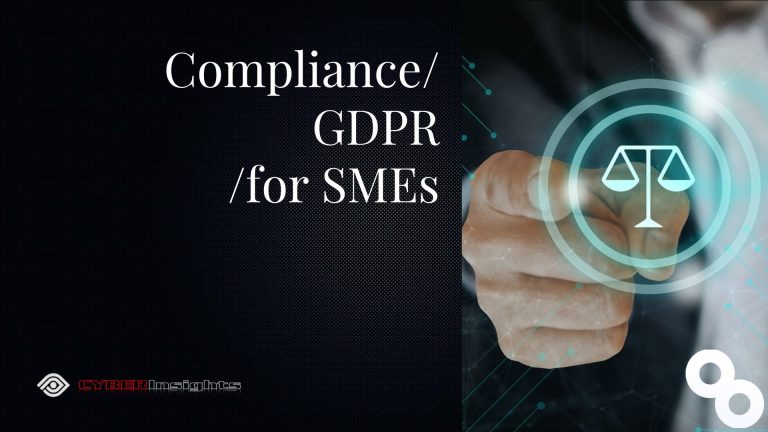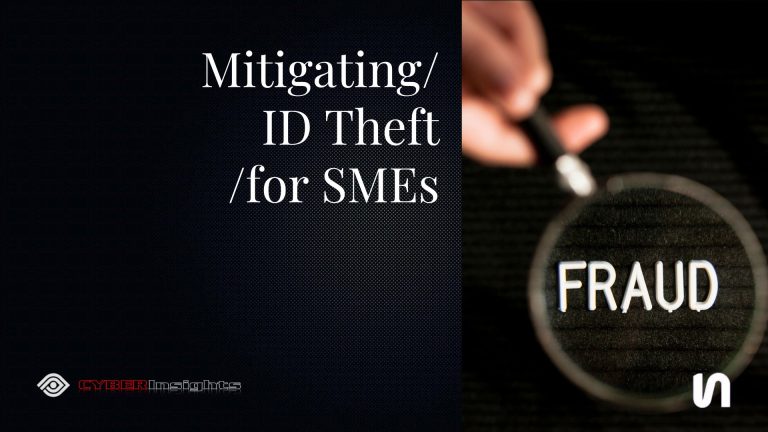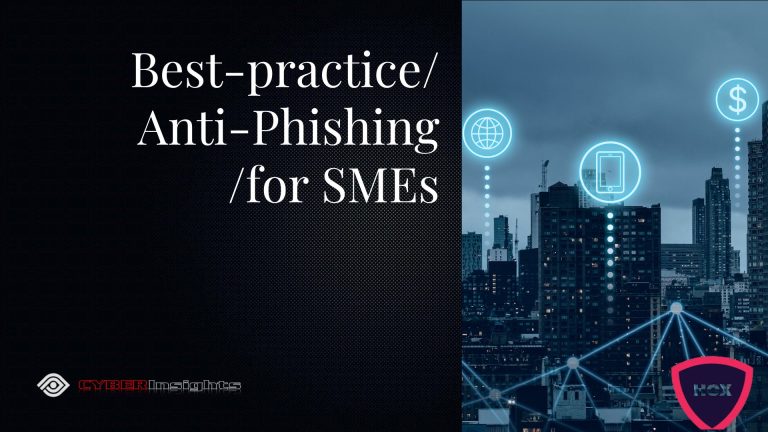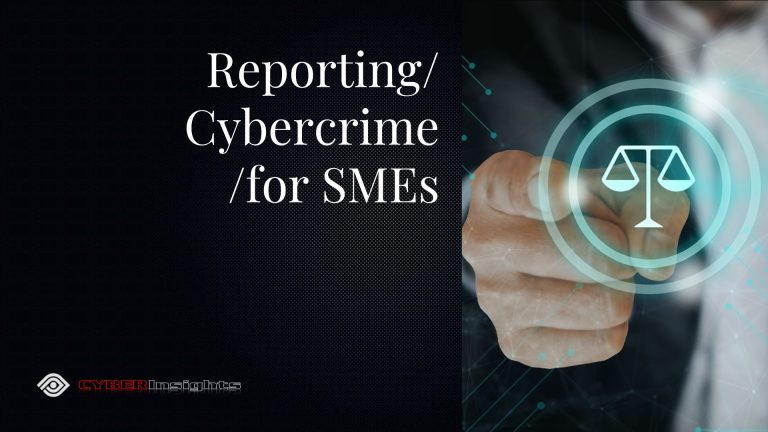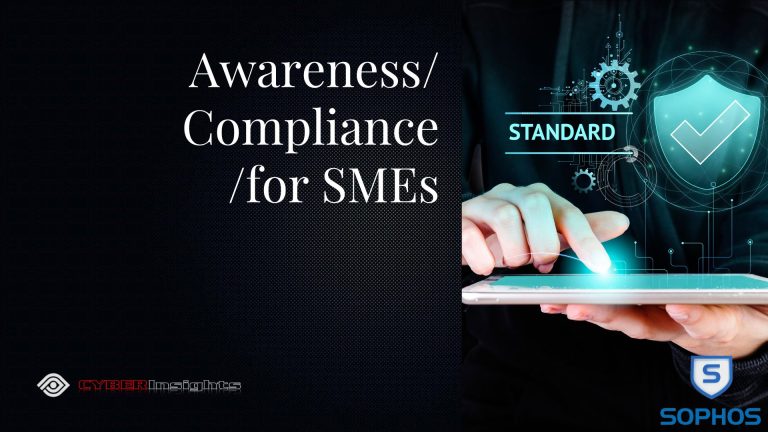SME COMPLIANCE: The General Data Protection Regulations (GDPR) – What is GDPR in Summary?
April 22, 2025
Helping Keep Small Business CYBERSafe!
Gibraltar: Tuesday 22 April 2025 at 12:00 CET
SME CYBER COMPLIANCE: GDPR – What is GDPR in Summary?
By: Iain Fraser – Cybersecurity Journalist
Published in Collaboration with: Ensurety.co.uk
SMECYBERInsights – The UK Small Business Cybersecurity Network
#SMECyberInsights #SMECyberSecurity #SMECyberAwareness #CyberSafe #SME #SmallBusiness #GDPR
The General Data Protection Regulation (GDPR) is one of the most significant pieces of data protection legislation ever introduced. For UK Small Businesses, understanding and implementing GDPR compliance remains crucial even post-Brexit. This article explains the essentials of GDPR in straightforward terms.
What is GDPR?
GDPR is a comprehensive data protection law that came into effect on May 25, 2018, across the European Union. After Brexit, the UK incorporated these regulations into domestic law as the “UK GDPR” alongside an updated Data Protection Act 2018. The regulation creates consistent data protection rules across Europe and applies to any organisation handling EU or UK citizens’ personal data—regardless of where the organisation is based.

Core Principles of GDPR
GDPR is built on seven fundamental principles:
1. Lawfulness, fairness, and transparency — Process data legally, fairly, and with clear communication to individuals.
2. Purpose limitation — Collect data only for specified, explicit, and legitimate purposes.
3. Data minimisation — Process only data that is necessary for your stated purposes.
4. Accuracy — Keep personal data accurate and up-to-date.
5. Storage limitation — Store data only as long as necessary for your stated purposes.
6. Integrity and confidentiality — Ensure appropriate security of personal data.
7. Accountability — Take responsibility for complying with GDPR and demonstrating compliance.
Key Rights for Individuals
GDPR grants individuals several important rights regarding their personal data:
– Right to be informed — Individuals must know how their data is being used.
– Right of access — Individuals can request copies of their personal data.
– Right to rectification — Incorrect data must be corrected upon request.
– Right to erasure — Also known as the “right to be forgotten.”
– Right to restrict processing — Individuals can limit how their data is used.
– Right to data portability — Individuals can obtain and reuse their data.
– Right to object — Individuals can oppose certain types of processing.
– Rights related to automated decision making — Protection against purely automated decisions.
What Constitutes Personal Data?
Under GDPR, personal data includes any information that can directly or indirectly identify a living individual, such as:
– Names and addresses
– Email addresses
– IP addresses
– Location data
– Online identifiers like cookies
– Financial information
– Health and genetic data
– Biometric data
– Racial or ethnic origin
– Political opinions
– Religious beliefs

GDPR for UK Small Businesses
For small businesses in the UK, GDPR compliance requires:
1. Data Mapping — Understanding what personal data you collect, where it’s stored, and who has access.
2. Legal Basis — Identifying and documenting your lawful basis for processing personal data (consent, contract, legal obligation, vital interests, public task, or legitimate interests).
3. Privacy Notices — Creating clear, concise privacy policies that explain how you collect and use personal data.
4. Data Subject Rights — Implementing procedures to handle data subject requests within the required one-month timeframe.
5. Security Measures — Putting appropriate technical and organisational measures in place to protect personal data.
6. Data Breach Procedures — Having processes to detect, report, and investigate personal data breaches.
7. Data Protection Impact Assessments (DPIA) — Conducting assessments for high-risk processing activities.
8. Records of Processing — Maintaining documentation of your processing activities.
Consequences of Non-Compliance
The UK GDPR is enforced by the Information Commissioner’s Office (ICO), which can impose:
– Fines up to £17.5 million or 4% of annual global turnover (whichever is higher) for serious violations
– Audits and enforcement notices
– Reputational damage that can harm business relationships and customer trust
Practical Steps for Compliance
1. Audit your data — Review what personal data you collect and process.
2. Update privacy policies — Ensure they’re clear, accessible, and comprehensive.
3. Review consent mechanisms — Make sure they’re explicit, informed, and freely given.
4. Train staff — Everyone handling data should understand GDPR requirements.
5. Implement security measures — Use encryption, access controls, and regular security reviews.
6. Create procedures — Develop processes for handling data breaches and subject access requests.
7. Consider appointing a Data Protection Officer— While not mandatory for all small businesses, having someone responsible for data protection is good practice.
Conclusion
For UK small businesses, GDPR compliance isn’t just about avoiding penalties—it’s about building trust with customers and protecting valuable data assets. By understanding the core principles and implementing appropriate measures, small businesses can turn GDPR compliance from a regulatory burden into a competitive advantage.
The regulations may seem daunting at first, but taking a systematic approach to compliance will help protect both your business and your customers’ data. Remember that GDPR compliance is an ongoing process rather than a one-time project, requiring regular reviews and updates as your business evolves.
This provides general information about GDPR but does not constitute legal advice. For specific compliance queries, consult with a Professional consultant such as Ensurety.co.uk
UK Small Business Owner? Join CYBERInsights Free Now! & Access the SME Cyber Forum – Read, Learn, Engage, Share …
The Latest SME Cybersecurity News, Threat Intelligence & Analysis, Timely Scam Alerts, Best-practice Compliance, Mitigation & Resources specifically curated for UK Based SMEs in a Single Weekly Email direct to your Inbox or Smart Device together with Unrestricted Free Access to our entire SME Cyber Knowledge & Tutorial Library.
GDPR Training & Audits – Your business’s reputation is everything. If you’re not GDPR compliant, there is much more at stake for your company than a fine. Without your reputation and proof that you can offer your clients/customers complete privacy and protection, you could be left out in the cold. Our online course offers you a human approach to training while being informative and easy to follow. We also offer in-house training with Keith, who has been involved in the development of the General Data Protection Regulation with both the UK Information Commissioner’s Office and the Internet Advertising Bureau. As well as training, we are able to run full GDPR audits on your businesses terms and conditions and privacy policies.


